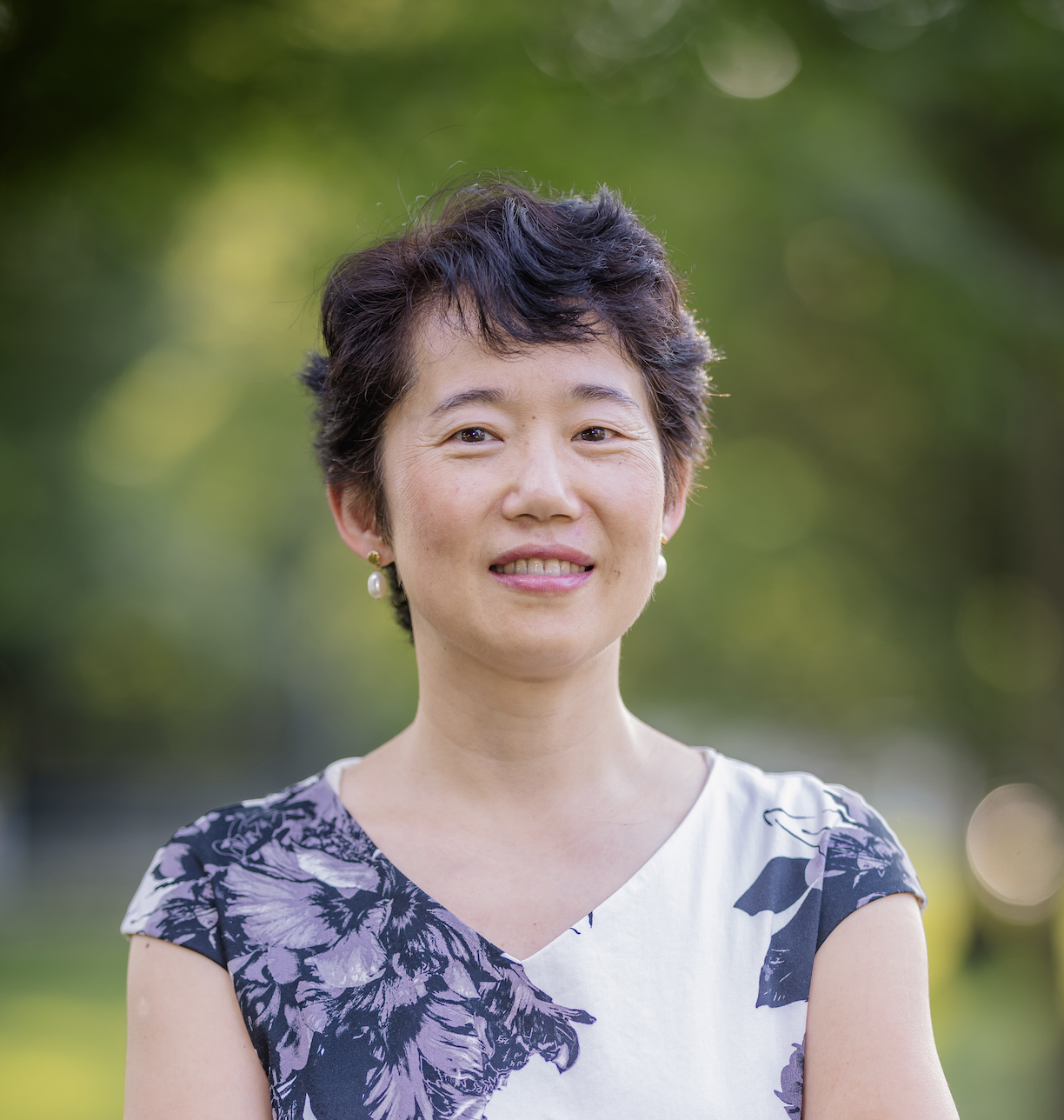|
|
| 2020 ISCB Innovator Award Xiaole Shirley Liu, PhD |
2020 ISCB Innovator Award: Xiaole Shirley Liu, PhD
From Basic Genomics to the Cancer Moonshot
Xiaole Shirley Liu, PhD, Professor, Biostatistics, Harvard T.H. Chan School of Public Health; Co-director, Center for Functional Cancer Epigenetics, Dana-Farber Cancer Institute
X. Shirley Liu grew up in Tianjin, China and her elder brother sparked her interest in biology at an early age. She transferred from Peking University during her freshman year to pursue her undergraduate degree at Smith College in the United States. Liu was working towards a degree in biochemistry when she took a basic computer literacy course. From that class, Liu became drawn to computer programming and quickly immersed herself in computer science courses in her junior year. In summer 1996 , she had a transformative experience, she recalled, “ At the recommendations of my advisors Jeanne Powell and Steven Williams, I went to a University of Washington summer workshop in bioengineering and visited several universities in the West Coast. The visit to Stanford helped me realize how I could combine computer science and biology.” Liu graduated summa com laude from Smith College in 1997 with a double major in biochemistry and computer science. She pursued a Ph D in the nascent f ield of biomedical informatics, with a minor in computer science, at Stanford University. At the time, Pat Brown and Ron Davis’ laboratories developed DNA microarrays to study gene expression, transcription regulation, and protein- DNA interactions. Under the guidance of her PhD advisors Douglas Brutlag and Jun Liu, she developed algorithms for finding protein- DNA binding motifs ( Bio Prospector, MDscan, and Motif Regressor) from co- expressed gene clusters and chromatin-immunoprecipitation microarrays (Ch IP- chip).
Liu accepted a faculty position right after PhD and became an assistant professor in the Department of Biostatistics and Computational Biology in the Dana- Farber Cancer Institute/ Harvard School of Public Health in 2003 . She recalled, “I was very lucky to collaborate with many wonderful colleagues at Harvard, especially with Myles Brown early in my faculty career. We share research interests in gene regulation and both believe the power of technology. Myles showed me how to use technologies cost effectively to tackle interesting biological problems, how to be open- minded when data lead us to unexpected results, and how to understand the mechanisms underlying our observations.” They developed numerous algorithms and tools (MAT, MACS, Cistrome, LISA, and MAESTRO) to model transcription factor binding and chromatin dynamics that are important to understand gene regulation in development and diseases. Liu and Brown continue to be close collaborators and have published around 70 papers together. As a member of the ENCODE consortium, Shirley Liu's Lab continued to maintain and update these algorithms and tools, which have helped many other scientists adopt new genomics technologies and generate hypotheses.
Liu became drawn to translational cancer research in 2012 after reading the Pulitzer Prize winning book, The Emperor of All Maladies, by Siddhartha Mukherjee. She had just been tenured and wanted to broaden her research areas and take more risks in her projects. Liu developed new methods (MAGe CK) to design and analyze genome- wide CRISPR/ Cas 9 knockout screens. Her team used computational approaches integrating large- scale compound and genetic screens, as well as functional genomics profiles from cancer cell lines and tumor cohorts, to refine our understanding of hormone receptor therapies, epigenetic inhibitors, gamma secretase inhibitors, receptor tyrosine kinase inhibitors, and immune checkpoint inhibitors in different cancers. She also developed novel algorithms TIMER and TRUST to comprehensively characterize tumor- infiltrating immune cells and immune receptor repertoires in over 10,000 tumors from The Cancer Genome Atlas. Liu continues to make significant contributions to cancer gene regulation. Liu is the principal investigator of the Cancer Immunologic Data Commons, a part of the NCI Cancer Moonshot project that aims to develop better cancer immunotherapy biomarkers and optimize treatment strategies.
Liu considers her role as a mentor to be a critical part of her job. She said, “I want trainees to explore projects that build on their interests and previous expertise and combine that with my lab’s knowledge on gene regulation. This helps each trainee to develop a unique identity.” She has already mentored 18 trainees who have moved on to tenure track faculty positions and continues to welcome a diverse array of trainees with computational and experimental expertise.
Liu is a highly cited researcher with a prodigious publication record that includes more than 200 papers published by her group, many of them in high- profile journals and highly cited. Liu has served on the editorial boards of leading genomic and computational biology journals throughout her career.
She has also served on a number of conference organizing committees and study sections. She received the Sloan Research Fellowship (2008), has been a Breast Cancer Research Foundation Investigator (2017) , and became a Fellow of ISCB (2019). Liu’ s open access resources were recognized with the Benjamin Franklin Award for Open Access in the Life Sciences in 2020 .
Liu feels deeply honored to be recognized with the ISCB Innovator Award, especially as it comes from her peers in computational biology. She is inspired to continue pursuing projects that advance our understanding of basic biology and can be translated into clinical benefits to cancer patients.
_______________________________________________________
ISCB will present the Accomplishments by a Senior Scientist Award, Overton Prize, Innovator Award and Outstanding Contributions to ISCB Award, at ISMB 2020 (www.iscb.org/ismb2020), which will take place in Montreal, Quebec, Canada, July 12-16, 2020 where, in addition, Peng, Liu, and Salzberg will present keynote addresses during the conference.
Full bibliographical articles profiling the award recipients will be available in the ISMB 2020 focus issue of the ISCB newsletter later this year, as well as the ISCB Society Pages in OUP Bioinformatics, and F1000 Research ISCB Community Journal.
>> Return to List of Innovator Awards Recipients




